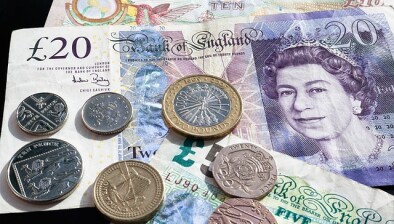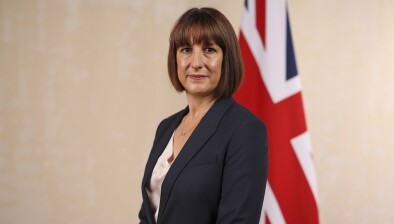Budget 2015 Key Points

George Osborne has delivered his sixth Budget as chancellor, and the last of the current Parliament.
Below is a summary of the key points announced as compiled by Edinburgh-based accountants Chien + Tait:
1. The UK had the fastest growth in the G7 in 2014
The UK economy had the fastest annual growth among G7 economies in 2014, and the strongest annual growth since 2007. At the end of 2014, employment reached its highest ever level.
2. Debt will fall
Debt will fall as a share of GDP from 2015-16, a year earlier than forecast at Autumn Statement.
By 2018-19, the government anticipates a surplus (will raise more in taxes than is being spent) of £5.2 billion.
3. The tax-free personal allowance is being increased
The tax-free personal allowance – the amount people earn before they have to start paying tax – will rise by £200 to £10,800 in 2016-17, and £11,000 the year after.
Overall, there will be an increase to the personal allowance from £6,475 in 2010, to £11,000 in 2017-18. The point at which higher earners start paying 40% tax will increase in 2016-17 and for the following year. The threshold will be £42,700 in 2016-17 and £43,300 in 2017-18.
4. A new Personal Savings Allowance
From April 2016, a tax-free allowance of £1,000 (or £500 for higher rate taxpayers with total income less than £150,000) will be introduced for the interest that people earn on savings.
5. Introducing the Help to Buy ISA
To assist first time buyers save for a deposit, the Government will introduce a Help to Buy ISA.
People will be able to open an ISA, save up to £200 a month towards their first home, and the government will boost it by 25%. The government bonus is capped at £3,000 on £12,000 of savings.
6. ISA reform
The annual ISA allowance is increased to £15,240. ISAs are being reformed so that people can make withdrawals from the account without losing tax benefits provided the money is put back in before the end of the same financial year.
7. £1.25 billion for children’s’ mental health services
An extra £1.25 billion will be spent on mental health services for children and new mums.
8. Cancelling the fuel duty increase scheduled for September
Fuel duty will be frozen again; since 2011, the government has cut and frozen fuel duty, saving a typical motorist a total of £675 by the end of 2015-16.
9. Cut in beer duty
1p off a pint, a 2% cut for spirits and most ciders, and a freeze on duty on wine.
10. Annuity changes
From April 2016, people who have a pension annuity will be able to sell it on without paying tax at 55% although they will pay their usual rate of tax on the proceeds.
11. Charities can claim more gift aid on small donations
The amount of small donations on which charities can receive an extra 25% top up payment without the need to keep detailed records is increasing from £5,000 to £8,000 a year.
12. Farmers averaging of profits
This extends the period from two to five years over which farmers can average their profits for tax purposes. This is designed to iron out large fluctuations in income and will give farmers additional security as they typically have volatile profits due to uncontrollable factors such as the weather.
13. Abolishing the annual tax return
For millions of people all tax information will be stored online and they will no longer need to complete a tax return. Those with complex tax affairs will be able to use the new digital tax accounts system to declare income and pay tax.
14. Infrastructure investment
Better infrastructure projects will be rolled out and more powers to local areas will be given, with a new devolution deal for things like transport, business support and skills for West Yorkshire, and more planning powers for London.
Ten Enterprise Zones across the country are also being supported to go further to create growth and jobs.
15. Banking
The bank levy rate will be increased from 1 April 2015.
16. Oil and gas sector support
A new Investment Allowance and reduction to the supplementary tax charge on oil and gas companies further, from 30% to 20%, from 1 January 2015.
The rate of Petroleum Revenue Tax paid on older oil and gas fields will also be reduced from 50% to 35%.
These changes are expected to increase oil production by around 15% by 2019, and drive £4 billion of new investment over the next five years.
17. Broadband and mobile networks
Investment of up to £600 million to deliver better mobile networks, and aim that ultrafast broadband of at least 100 megabits per second should become available to nearly all UK premises in the country.
18. Postgraduate research loans
Loans up to £25,000 will be available for postgraduate PHD and masters research students.
19. Investment in science and innovation
£140 million investment in world class research on the infrastructure and cities of the future, and £40 million in research into what is known as the Internet of Things.
Launch of a new UK research initiative into the future potential of digital currency technology, supported by a £10 million increase in funding.
20. Tax relief for local newspapers
A consultation on how local newspapers can receive tax support.
21. VAT refund for palliative care charities
In the Autumn statement last year the government announced that it would be implementing a scheme to allow care hospices to obtain VAT refunds on their running costs.
In today’s Budget it was announced that this scheme will be implemented on 1 April 2015. We are expecting that there will be fuller guidance in due course.
22. UK residential property
From April 2015 non UK residents will now pay tax on the sale of UK residential property. Previously all of the gain was exempt whereas now the gain arising after 5 April 2015 is taxable.







